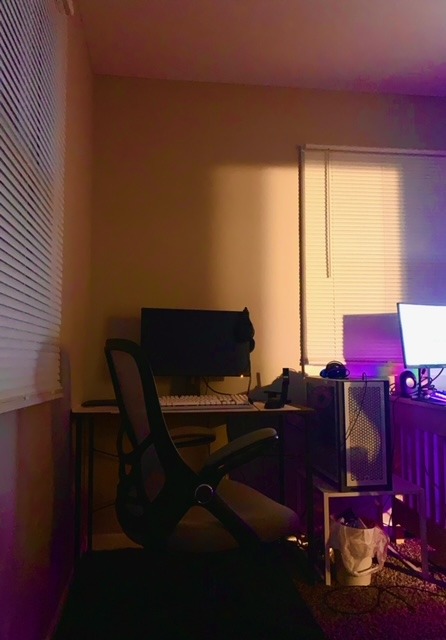#interpreting
Text
Recommendations for media about translation, interpreting, and foreign languages
Movies and TV
Quo Vadis, Aida? (2020)
The Interpreter (2005)
The Last Stage (1948)
Books
Babel: An Arcane History by R.F. Kuang
The Centre by Ayesha Manazir Siddiqi
Translating Myself and Others by Jhumpa Lahiri
The Interpreter by Suki Kim
Girl in Translation by Jean Kwok
Translation Nation by Héctor Tobar
Alphabet of Thorn by Patricia A. McKillip
Translation State by Ann Leckie
Other Important Topics and Subjects
La Malinche
The Rosetta Stone
The Tower of Babel
The Adamic Language
Esperanto
Philology
Goethean World Literature
Documentaries and History
The Interpreters: A Historical Perspective
The Nuremberg Trials
Biblical Translation
St. Jerome - patron saint of translators
Shu-ilishu's Seal (first depiction of an interpreter)
#translation#interpreting#languages#foreign languages#polyglot#langblr#lingblr#grad school#translator#interpreter#babel#babel an arcane history#rf kuang#jhumpa lahiri#tower of babel#esperanto#nuremberg trials#biblical scripture#language nerd#language learning#bilingual#multilingual#gradblr#book recommendations#film recommendations#studyblr#philology#classic literature#dark academia blog
50 notes
·
View notes
Text
the long-term effect of studying translation and interpreting* is that you just have to suffer your whole life now listening to people refer to interpreting as "translation" and correcting them every time. And them continuing to say translation.
*very basically: translation deals with written content, interpreting with spoken content
#I'm so tired of being at an event#and people saying#“we even have translation/translators here”#it's not a translation!#uni stuff#translation#interpreting
39 notes
·
View notes
Text
I know it is not that deep, but every single time I see or hear someone say “translation is a betrayal of the original source” or “translation means I can never truly grasp what was meant” and mean it, I die a little inside. Do you know how much time, effort, countless nights spent agonising over context, meaning, intention, historical context, research etc. goes into a translation? Do you know about the concept of translation loyalty, how we are taught that it is one of the golden rules? Our loyalty to readers and author alike? How much understanding of a topic does not only go into translation but into interpreting as well? How much determination, frustration and love it all takes? How informed you have to be about hot words, cultural peculiarities, language-specific concepts and the like?
Do you know how much adoration goes into providing another human’s words - one whom you may have never met but by all that is holy and damned, their voice exists and it is worth being heard by all, no matter if they have access to the original language or not -, their thoughts and dreams and hopes and whatever else there is, for all eyes and ears and fingers?
It is demanding work. It makes you doubt and doubt and want to pull your own teeth out sometimes. I have spent minutes analysing a sentence simply to find the correct translation for the word “as”. I have checked sources, researched novels and plays long forgotten, hours before I would actually get to translate. I have spent nights researching, swallowing tears and cries of anger older than me, for interpreting jobs. I have felt unbridled joy upon delivering a valuable translation, could have jumped in exhilaration when elderly people came to me, smiling and thanking me profusely because they are interested in working for a good cause but they would not have been able to understand this conference without my friend and I because the conference was held in English, not German.
My state exams are coming up. I am this close to being a state certified and court-sworn translator and interpreter. Something I’ve been training for for 3 years. I would have never discovered Neil Gaiman as an author without the translation of “Norse Gods”, which I needed as reference material back in school. I would not be able to teach my mum English if not for my Scottish teacher during my time becoming a commercial correspondent and then starting to train as a translator. Without translation, nobody would ever be able to learn another language, or even get to know a different culture.
Translation is an act of love.
It’s in the smile of the Ukrainian kid whom I’ve interpreted for at a gaming conference, who did not speak a lick of German. It’s in the eyes of the Canadian Paralympics delegation stopping in Munich, whom we’re interpreting a sports event, a state dinner and a welcome speech for. It’s in the laughter of refugees who have been here for months to years, shunned by the government and left to be unheard until the multiple conferences, projects, organisation meetings held to help them, to make sure they are not forgotten. Who joke around with us in bits of English and Farsi - through another interpreter -, forge connections with others attending the meeting, quipping and teasing in broken German and my mother tongue rings as sweet as bells. It’s in the hands of elderly people attending a talk about the banning of uranium weapons, shaking but full of strength, as they thank us for our help. It’s my mother’s smile as I translate medical articles for her, as she never learned English, growing up in the GDR.
Translation is an act of loyalty and love. Of adoration for those who were, who are and who will be, and all the echoes of ourselves.
#translation#languages#pls I am so serious when I say all of this#stop saying translation is an act of betrayal#If all I needed was to betray the author and the meaning to be good at my job#I would not stay up and spend a fortune on dictionaries of all kinds to check my translation time and time again#interpreting#writing#me#I know it’s not that deep#I just felt desperate for some reason#writers of tumblr#books#literature#authors#neil gaiman#love
31 notes
·
View notes
Text


A quick background (like ~2 hours) that I made during/after watching the Julia Drawfee background drawclass. Based on my own office! There's more I would change and add but I got tired tbh
#background#drawing backgrounds#drawfee#julia drawfee#drawclass#drawing a background#how to draw backgrounds#how to draw#drawing an office#lighting#how to do lighting#how to draw lighting#interpreting#interpret a picture#draw from reference#drawf#karina drawfee#jacob drawfee#nathan drawfee#julia lepetit#i feel very educated#i can believe to learn
25 notes
·
View notes
Text
Does anyone need a translator?
I know this is suuuuuuper random, especially for Tumbrl but I figured it wouldn't hurt to try.
Long story short: I'm an interpreter and translator. Got my master's in interpreting last year but not many people hire people with little experience so I'm looking if I can find something as freelance, online.
I work from Spanish and English into Italian and from Italian into English.
My rates are good, and in certant cases I'm fine with doing some work for free or at a reduced rate ❤️
(reblogs are appreciated)
27 notes
·
View notes
Text
So, I am studying to be an interpreter, specifically a court interpreter. (It'll be a while before I'm there, but I'm working on it.) Whenever I tell people who are monolingual and don't work in languages that I'm studying to be an interpreter, they always come back with something like, "That's one of those jobs that will be taken over by AI pretty soon."
I've always brushed that off as people not understanding the field. Interpreting can't be taken over by AI because AI doesn't understand nuance or culture and can't make decisions about meaning when there's more than one possible interpretation. I've always said, "Every bilingual who has used Google Translate knows how much machine translation sucks."
None of that has changed, but the WGA strike has me worried about job security for interpreters in a way I wasn't before. Not because AI will be as good as or better than human interpreters anytime soon, but because AI will be cheaper than human interpreters pretty soon. And the people making hiring decisions may not care about the quality of the work.
Even now, court interpreters have to fight their way into courtrooms all the time. Judges are trying to deny people their constitutional right to an interpreter just because they don't want to wait for an understaffed interpreting department to send someone running down five flights of stairs to jump right into the next interpretation with no break. If AI is more available, even if it sucks, are courtrooms, are TV networks, are schools, going to choose to use AI instead of a human interpreter?
And if that happens, people's rights are going to be trampled. I talked about the nuance and the word choice that AI doesn't get, but in this field, miscommunication can ruin lives. Misinterpretation in a courtroom can get an innocent person convicted or deny a victim justice. Misinterpretation in a job interview can lead to underemployment for linguistic minorities. Misinterpretation in a hospital can lead to wrongful death. Obviously, AI isn't going to catch up to human interpreters anytime soon, just like a human is going to be able to write better TV than AI. But if it's cheaper, are hiring managers going to care?
Make no mistake, the fight that WGA is fighting is the first front in a war that is coming for us all. AI is easier, but it is not better. And we have to protect people's rights; not just rights to work, but rights to live.
#wga#wga strike 2023#chatgpt#ai#strike#workers rights#hold the line#this affects all of us#even those of us who don't work in the arts#interpreter#interpreting#court interpreting#medical interpreting#business interpreting
28 notes
·
View notes
Text
d9es that mean we r mutuals now
3 notes
·
View notes
Text
Spanish Interpreter Services In Delhi - Terakoya Multi Language Solution
Terakoya multi-language solution understands the importance of accurate and effective communication, especially when it comes to business, legal, medical, and other professional settings. we offer professional Spanish language interpreter services to help bridge the language barrier and ensure successful communication. Our interpreters are native speakers of Spanish and are fully trained and certified, guaranteeing you the highest quality interpreting services.
2 notes
·
View notes
Text


Getting prepped for the new semester, with a picture of my cuddly boy from this afternoon! Last year of my interpreter training program before I hopefully transfer to Gallaudet, but we'll see how well I manage to do on an ASLPI next semester- I passed the first one that's traditionally in every ITP, but Gallaudet requires another, so... no pressure. GAH!
#jack jack's study spo#studyblr#study hard#study inspo#study aesthetic#study inspiration#dark academia#study space#light academia#studying#asl#sign language#interpreting#foreign languages
28 notes
·
View notes
Text
just did a 5-hour interpreting extrance exam with only the power of God and Robin Swift on my side
27 notes
·
View notes
Text
#tiktok#asl#funny#interpreter#interpreting#i wanna tag it deaf but its not captioned so only accessible to asl speakers so idk
4 notes
·
View notes
Text
At one point I worked for over two years at a manufacturing plant as the interpreter for the Japanese vice President sent from the Japanese parent company to manage the plant
And I remember one time the plant manager refused to even bother explaining the function of some feature on the machinery to me when I asked because he said I wouldn't understand it
He wouldn't explain what the function of dummy switches were to me
#looking back in it he was kinda sexist actually#in a paternalistic way#I later picked up on what the function was myself through context of the meetings I was interpreting for#but yeah#old bad job#interpreting
3 notes
·
View notes
Text
I trained to be an interpreter, and I always wanted to work for public services (hospital, police, court, etc.). The public services are subcontracting all interpreting jobs through a company, though, that contacts interpreters for individual jobs and they pay (no surprise) peanuts.
Now, to give anyone an idea of a “normal working day”, here is a rundown:
I prepare for the job. That usually takes me several hours to look up legal terms and do my research. Unpaid, of course.
I get to the job. Usually an hour before, because you want to be on time. Again, unpaid.
Yesterday, I was on the job for about 2.25 hours and then I get home.
I was away (and unable to earn money through translation, for example) for roughly 4 hours and will be paid 40 pounds...
Which is honestly a joke. That is barely minimum wage here in the UK, not factoring in all the extra time I have to invest in this or me not getting jobs regularly.
And it makes me both so angry and sad, because I love this job so much, but cannot live off it.
22 notes
·
View notes
Text
Translators add value by noticing things so that no one else has to.
Translators can be strange people. Usually they are happy to stay in the background, quietly working the magic that can transform an incomprehensible mess into a serviceable working document. However, if you make an ill-advised comment showing that you have not grasped the intellectual nature of their work or have overestimated what machine translation can do, you will find they can be surprisingly fierce. UNOG Translator and a Member of the Staff Coordinating Council.
7 notes
·
View notes
Text
Let's feel God's blessing & care on this special day. ❤️

On this holiday full of sacred meaning, reflect on faith & life, give thanks to God for the grace & blessings He has brought.
No matter what challenges & difficulties we face, trusting in God's strength & mercy, we will overcome & move towards a better future.
@wooaskappofficial May all feel God's love & blessings on Ascension Day, share joy & peace with families & friends.
#multilingual#translationapp#translate#linguistics#translateit#interpretation#bilingual#polyglot#interpreting#speakfluently#godbless#ascension#spiritual growth#mysticism
1 note
·
View note
Note
hello! i'm hearing and studying to be an ASL interpreter (about to go into my second semester) and loving it so far. i don't plan to do this anytime soon, but at some point after i graduate/get certified i want to do an interpretation of a youtube series i really like to make it more accessible and just as a fun project.
my main question is, when it comes to interpreting settings, can i create a sign name referring to a fictional character? it's a niche series so there wouldn't be a pre-existing name sign like with mickey mouse, and some of these names come up very frequently. would it be better– in this setting where i could prepare the interpretation ahead of time– to show the series to a Deaf friend and have them assign namesigns? or fingerspell the names whenever necessary? again i wouldn't try to do this until i'm certified as an interpreter, but wanted to know what'd be the best way to go about this.
i may also have follow up questions about this project (depending on the response) or other interpreting scenarios if that's okay. love your blog, it's a great resource!
Hello,
this should be hopefully covered in your classes. Generally, when translation projects or interpreted projects in sign languages are done, it requires at least two people. One interpreter and one native (Deaf) speaker. They work together and make sure that the signs, grammar, etc are correct. The Deaf person also provides name signs or finds info about existing name signs, if they exist.
Bigger projects require even more people - there are often whole teams working on books. News are also translated by bigger teams (at least one intepreter, native speaker, editor, etc). Often, the ones on the video presenting is the native speaker.
Also, if you are studying, I recommend reaching out to your teachers with questions about interpreting scenarios? I do have some experience from a receiving end, but I am not an interpreter and I havent studied interpreting. How to act, what are the proper steps, how to interpret something specific, those are all things you should learn at school and/or discuss with your teachers. Good interpreting school should have at least one or more Deaf expert as well.
Mod T
4 notes
·
View notes